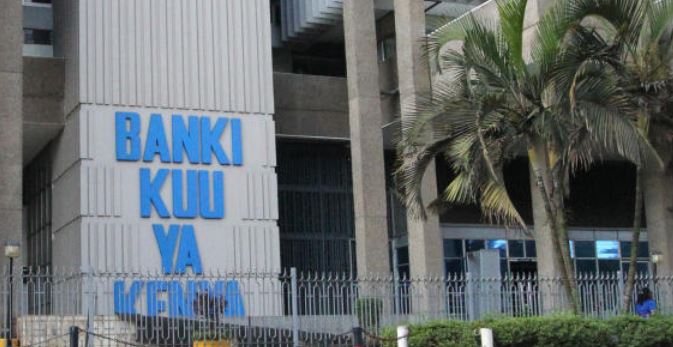 Central Bank of Kenya head office (PHOTO: FILE)
Central Bank of Kenya head office (PHOTO: FILE)
The Central Bank of Kenya (CBK) last week plunged into the market to mop up excess liquidity by
offering lenders attractive rates to park money in its reserves.The apex bank did not, however, indicate the amount it was mopping up from the market. Reserve repurchase (repo) - the rate at which lenders park surplus funds with reserve banks was raised to eight per cent on January 28 as CBK sort to stabilise prices.
This even as the economy began to pick up following the partial re-opening of the economy, a situation that has made the inter-market to be more buoyant.
CBK, whose roles include stabilising prices, occasionally gets into the market to buy back securities to keep the economy from overheating.
Whenever the banks have any shortage of funds, they can borrow it from the regulator. Repo rate is the rate at which CBK lends short-term money to the banks against securities.
The reverse repo, on the other end, is the rate at which the banks park surplus funds with reserve bank.
For while, the financial regulator has been injecting money into the economy by allowing banks using various instruments, including the Central Bank Rate, which is the rate at which banks borrow from the CBK.
The Monetary Policy Committee (MPC), the highest decision-making organ of CBK, maintained the CBR rate at seven per cent, noting that inflation was well anchored.
“Month-on-month overall inflation stood at 5.6 per cent in December 2020 compared to 5.3 per cent in November. The inflation rate is expected to remain within the target range in the near term, supported by lower food prices and muted demand pressure,” said CBK Governor Patrick Njoroge. CBK expects the recently introduced tax measures to have a modest impact on overall inflation.
Banks have also been accessing cheap loans after CBK reduced the CBR rate to seven per cent, in what is hoped that lenders will pass on the cheap loans to the private sector.
In case of repurchase agreements (Repo), where banks sell government securities to investors and buy them back after a short period, CBK extended the tenor for paying back from 28 to 91 days to help lenders with their liquidity when they run short of cash.
Additionally, CBK moved to provide more cash to Kenyans distressed by Covid-19 after it lowered the discount window rate by one percentage points.
As a result, cash-strapped lenders can now borrow from CBK to meet temporary liquidity needs after the apex bank reduced the discount window rate to 13.25 per cent from 14.25 per cent, the lowest in nine years.




No comments :
Post a Comment